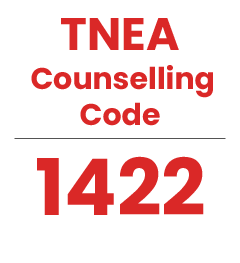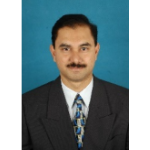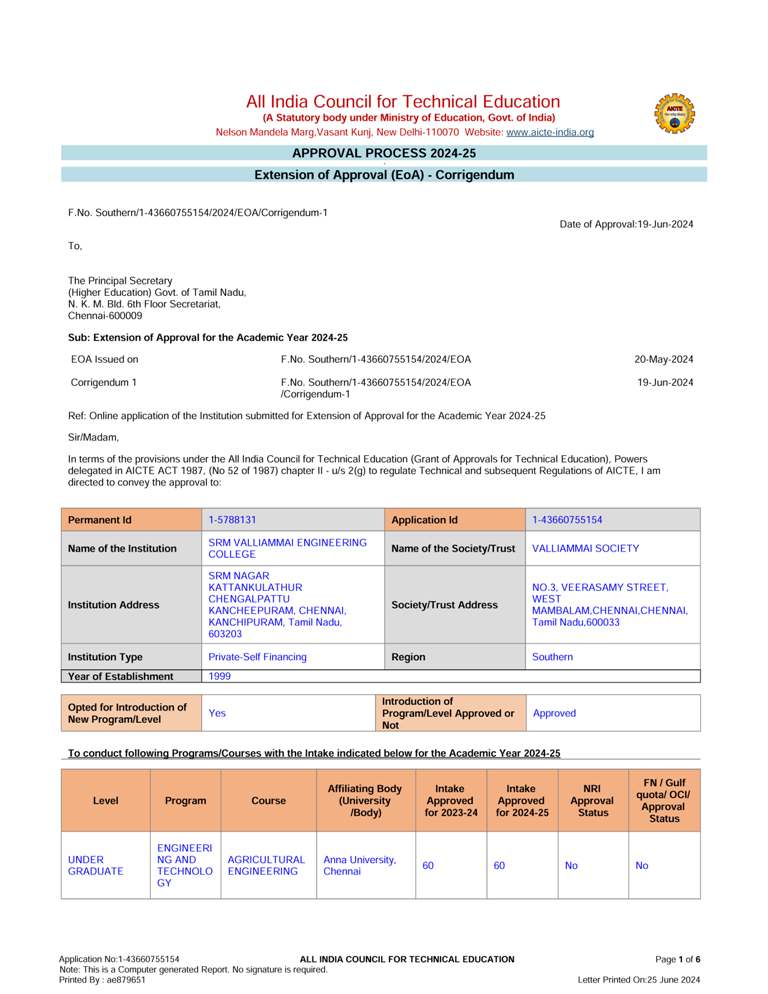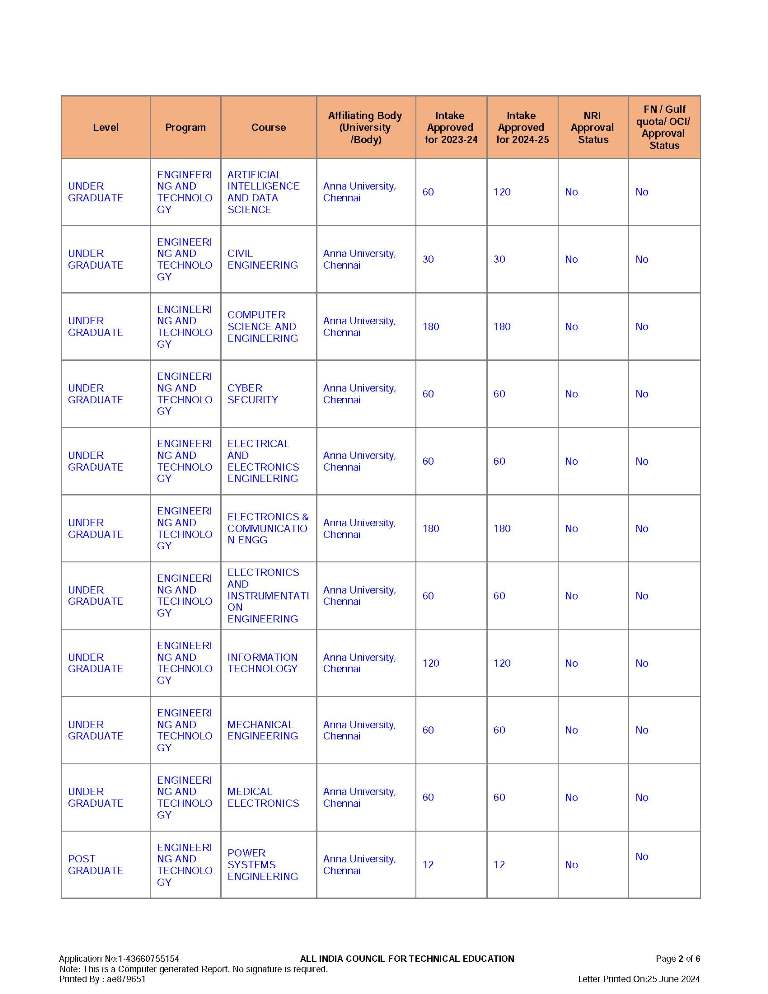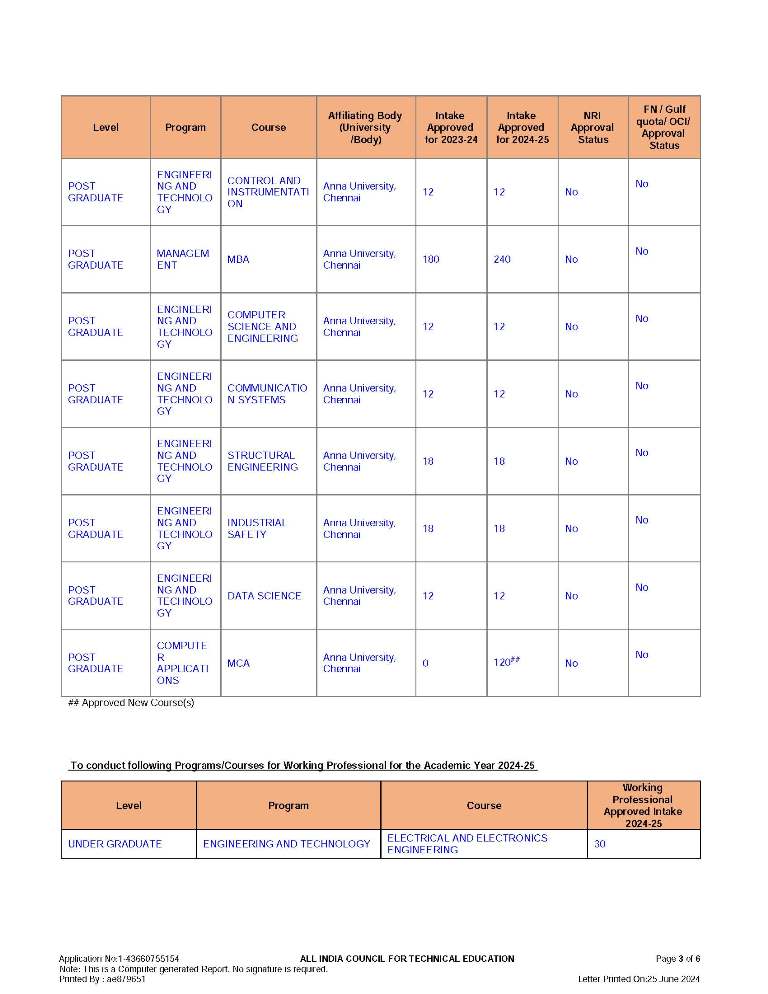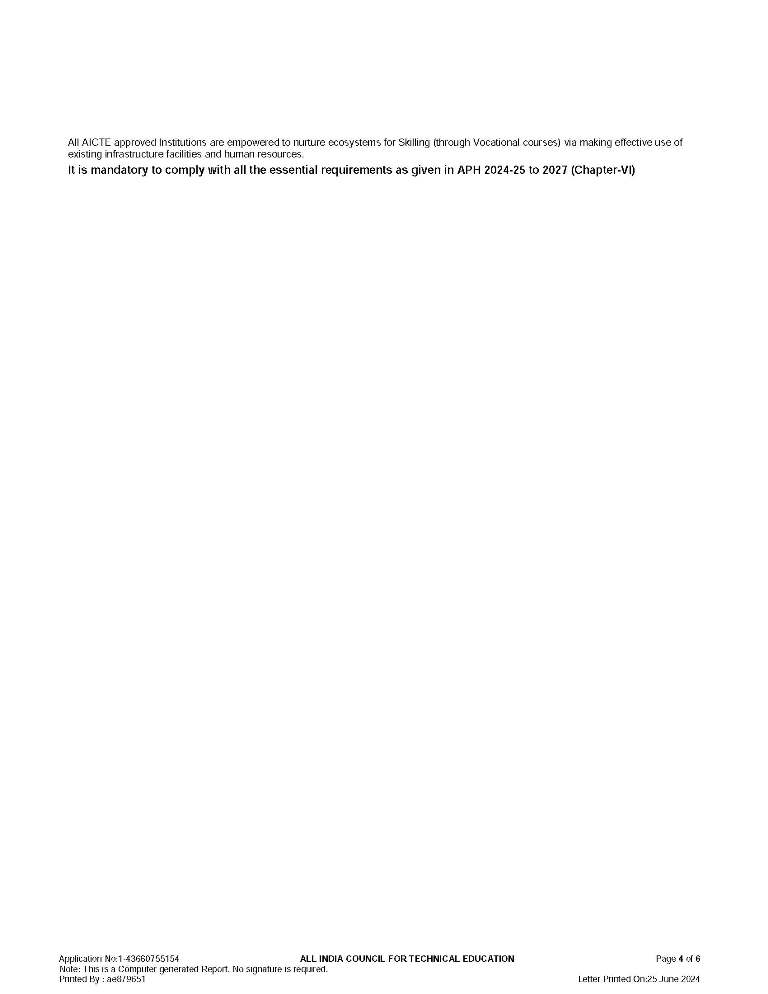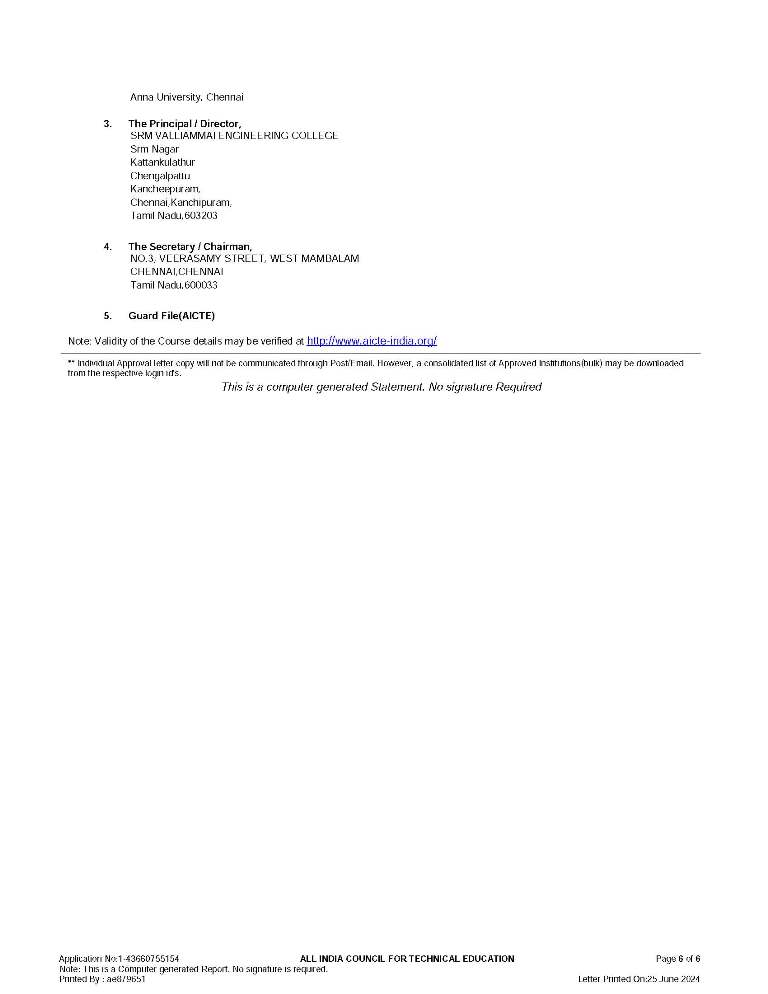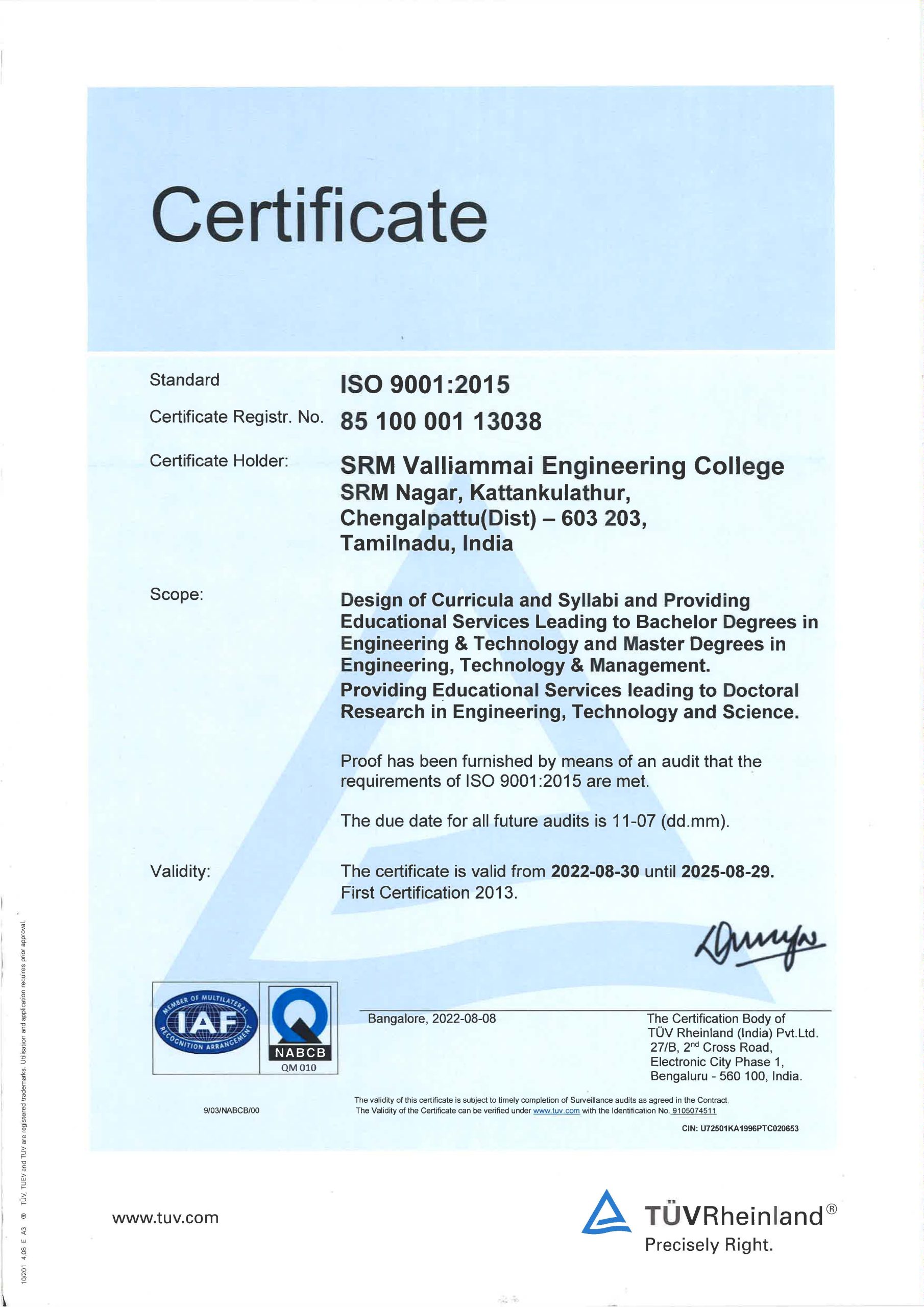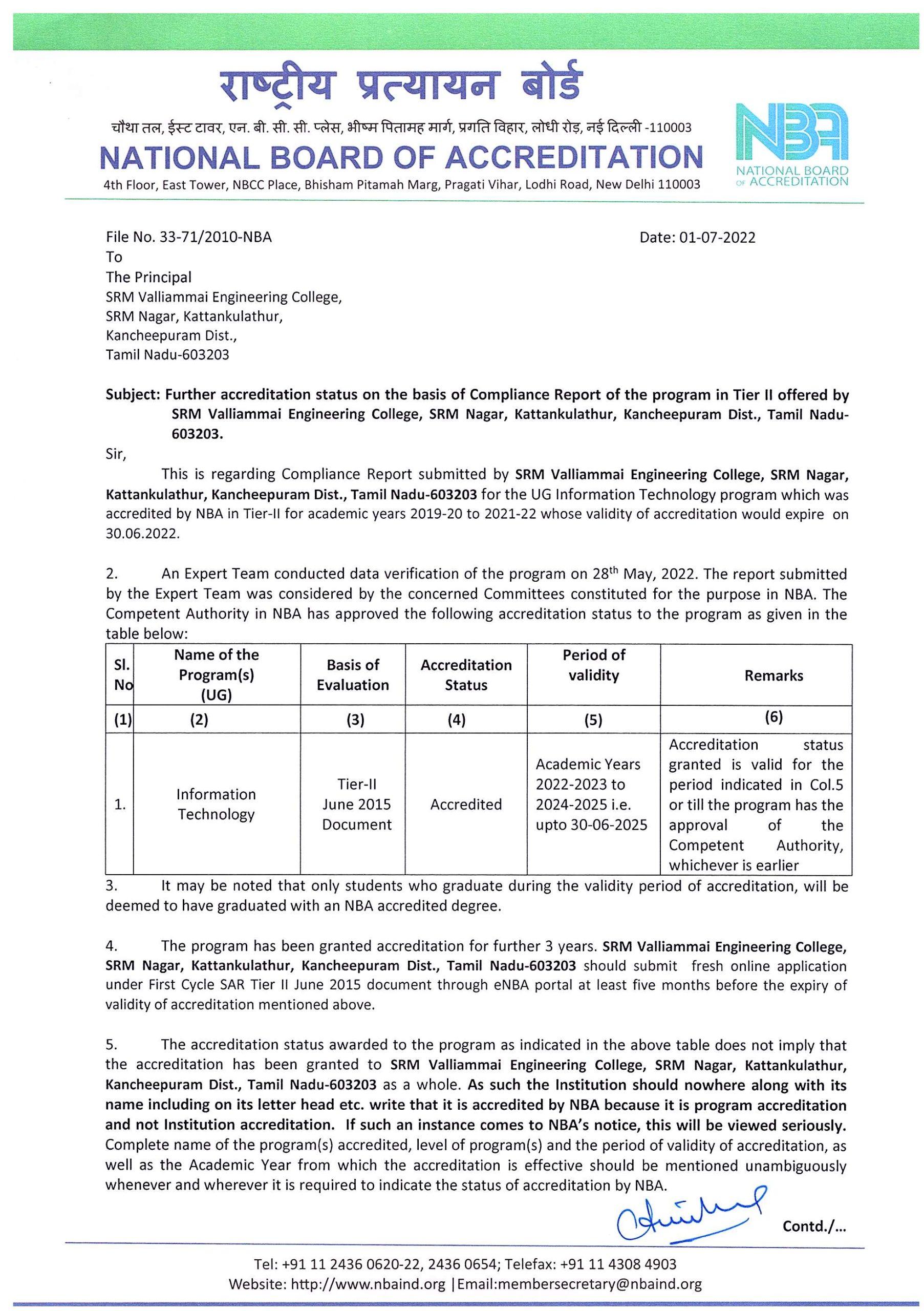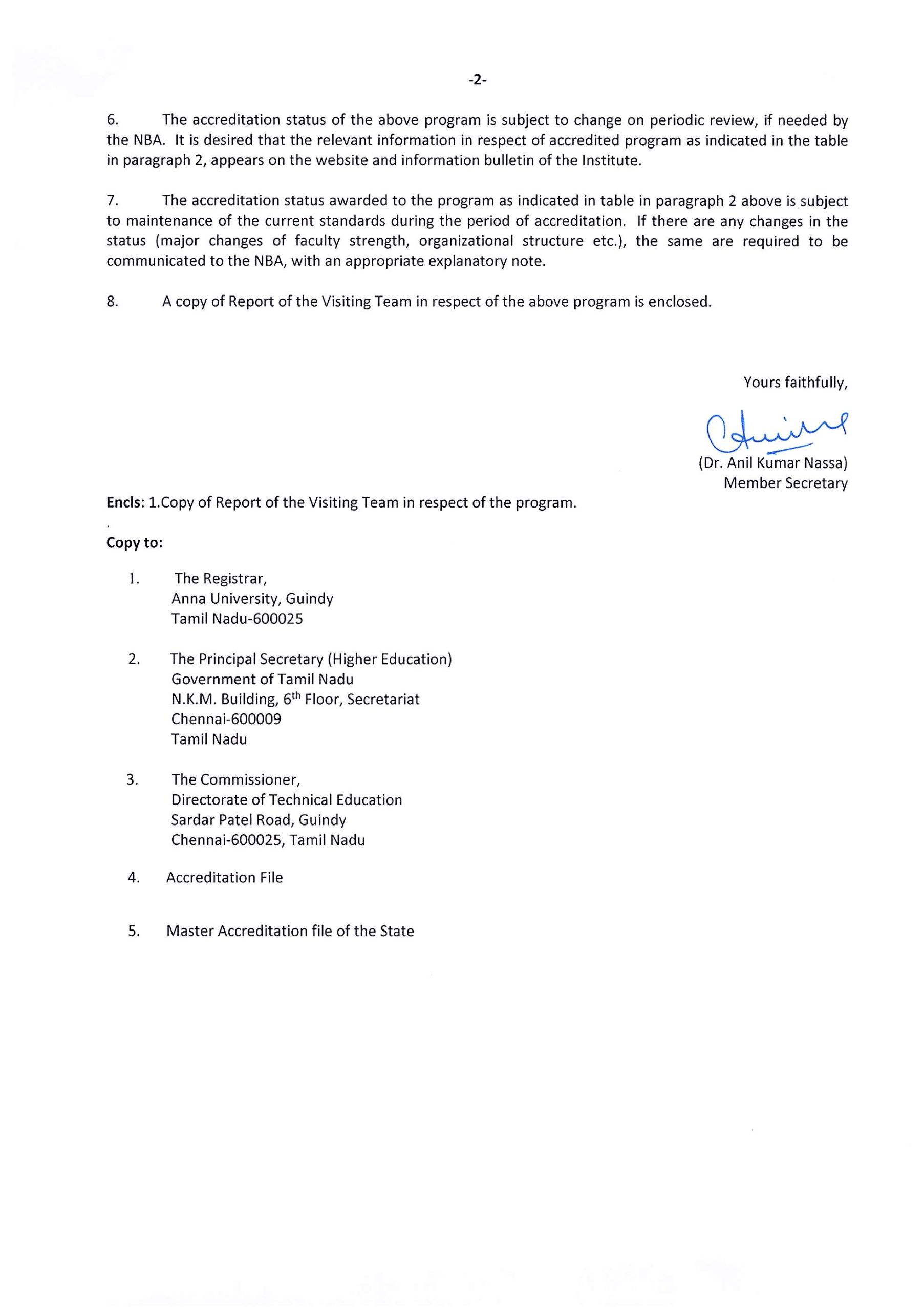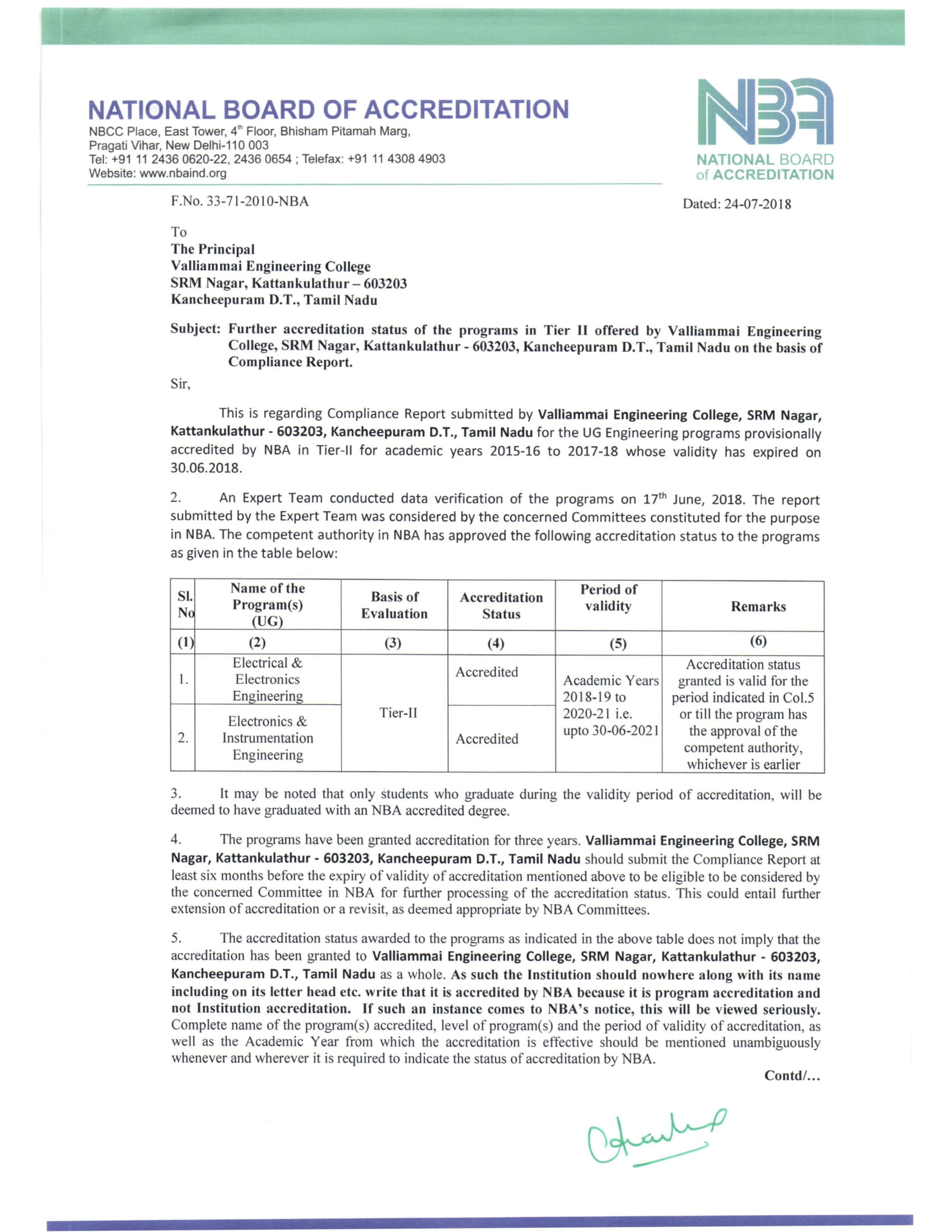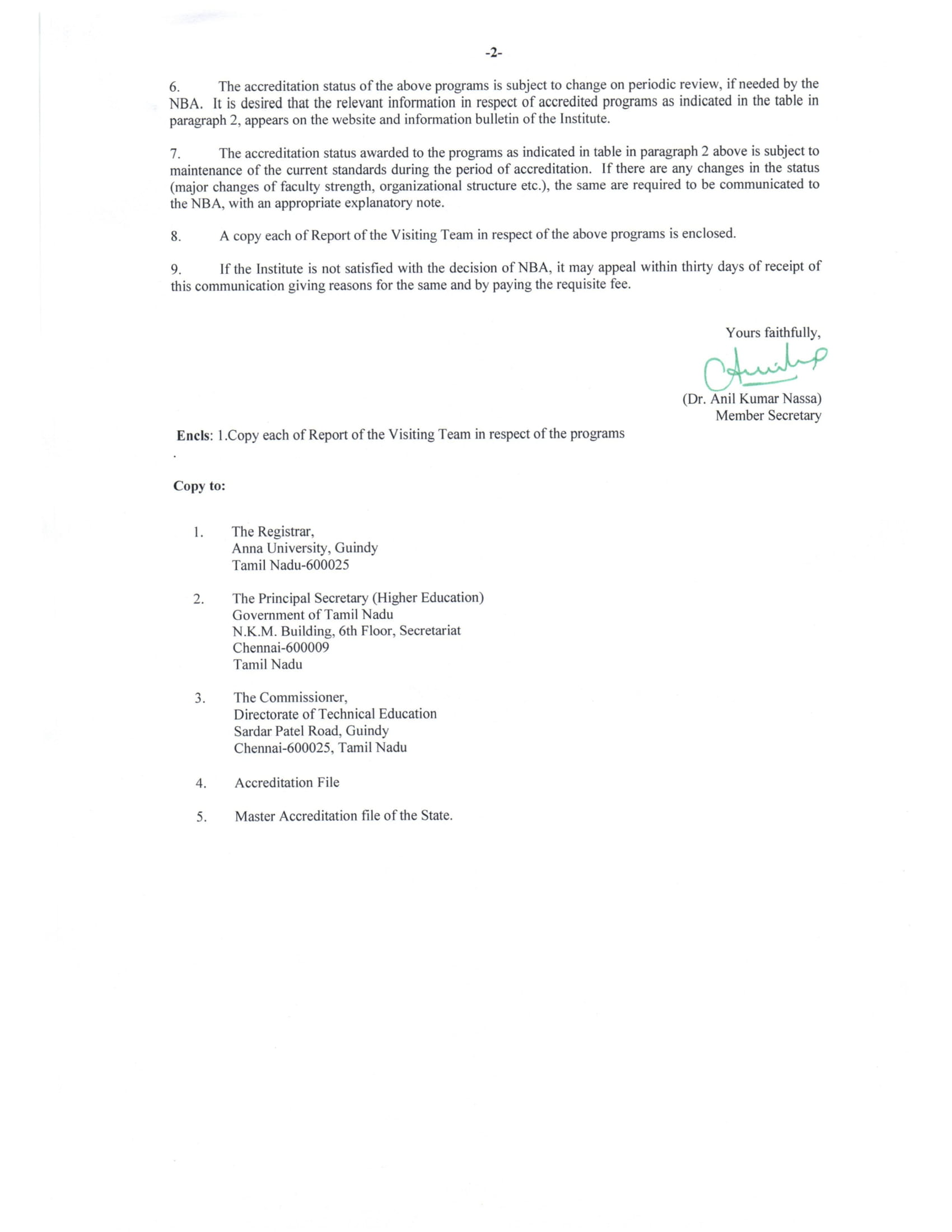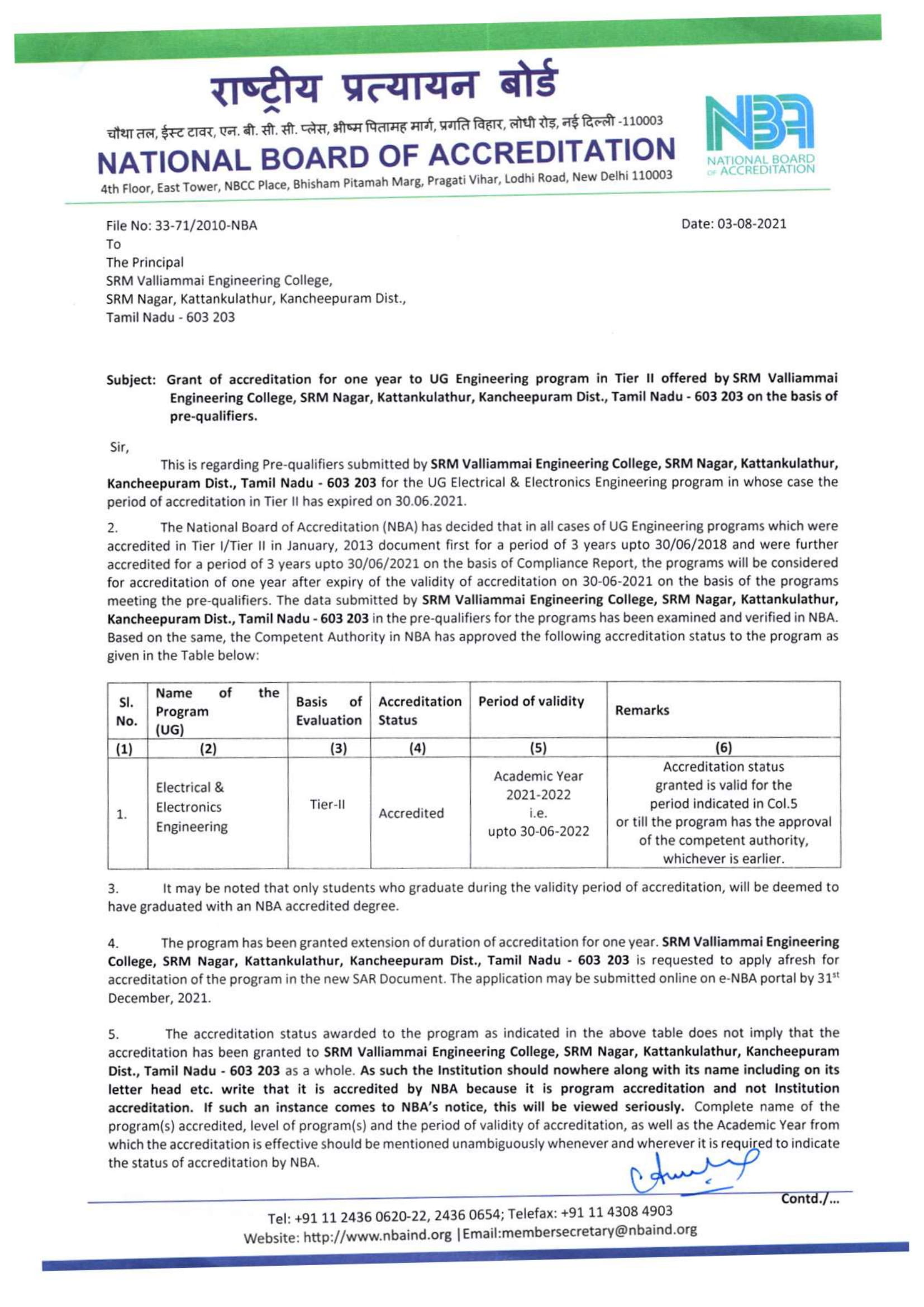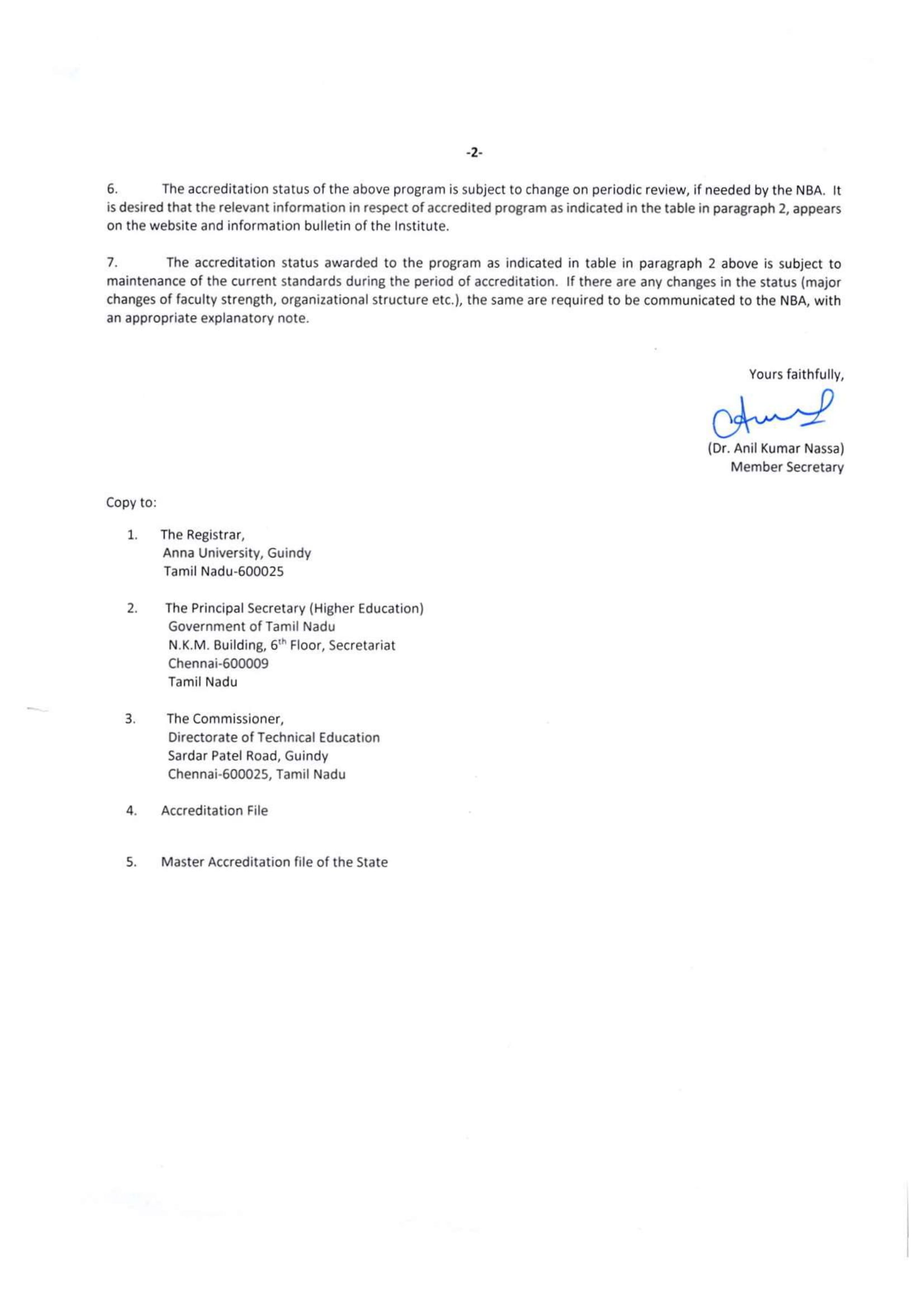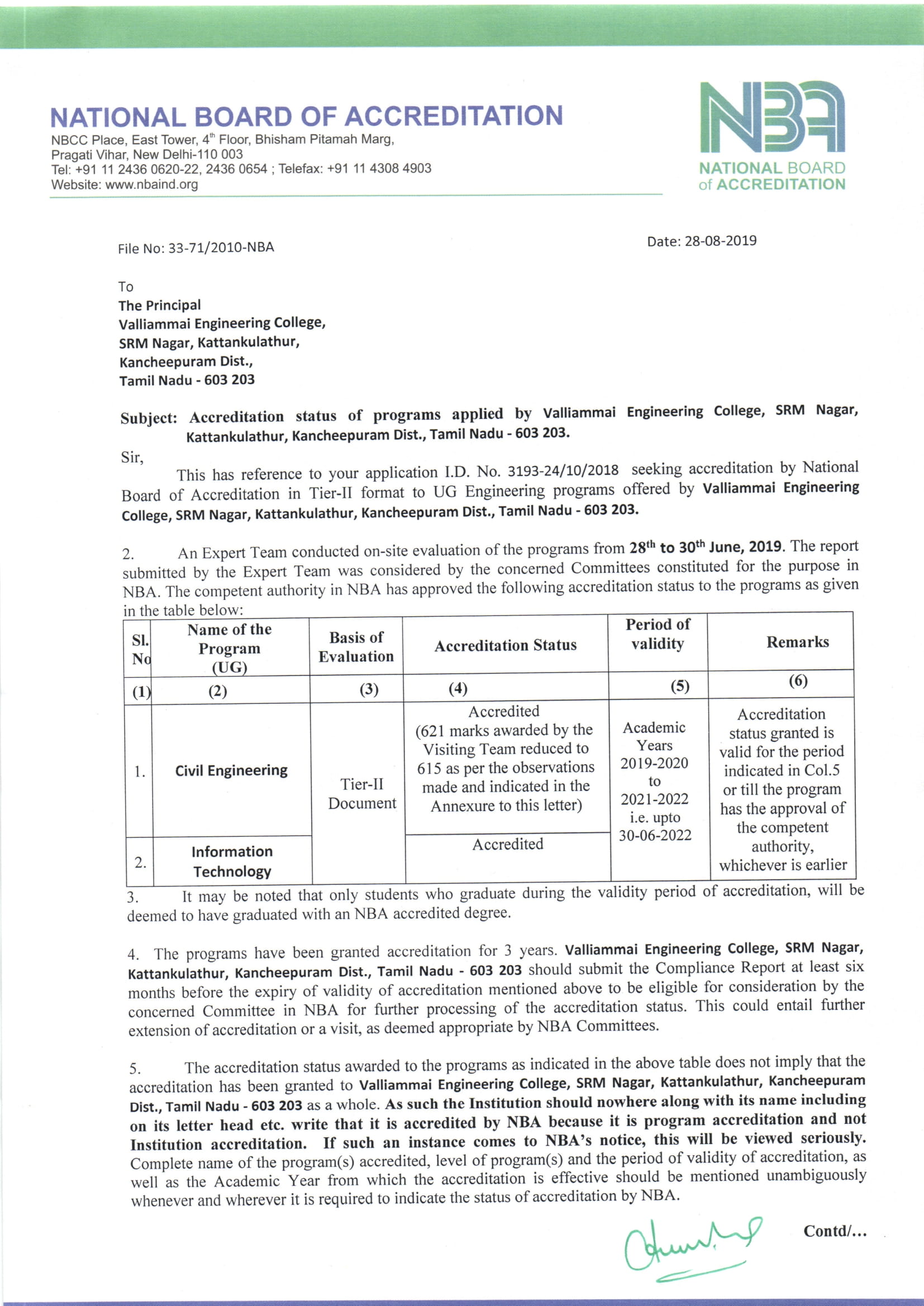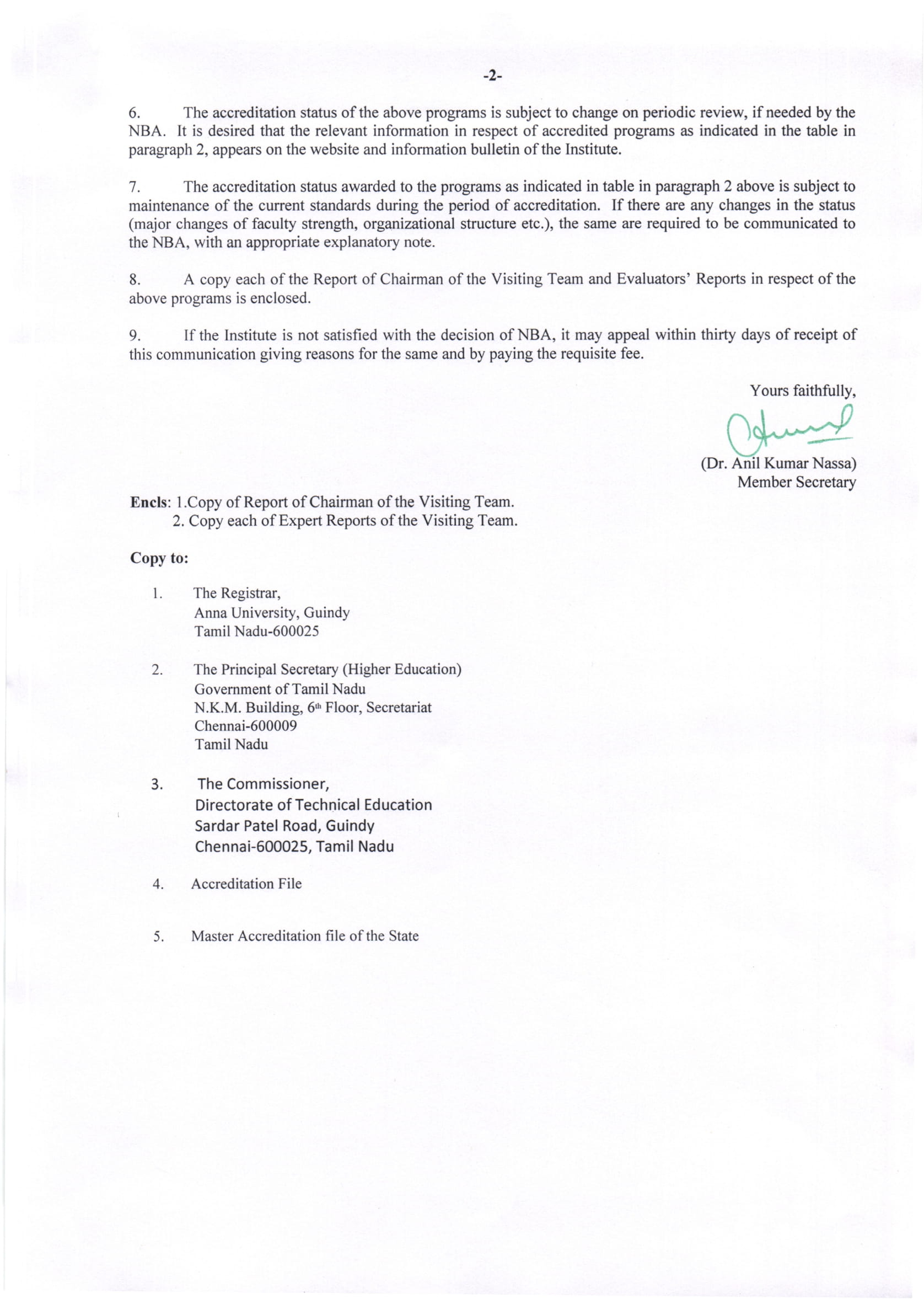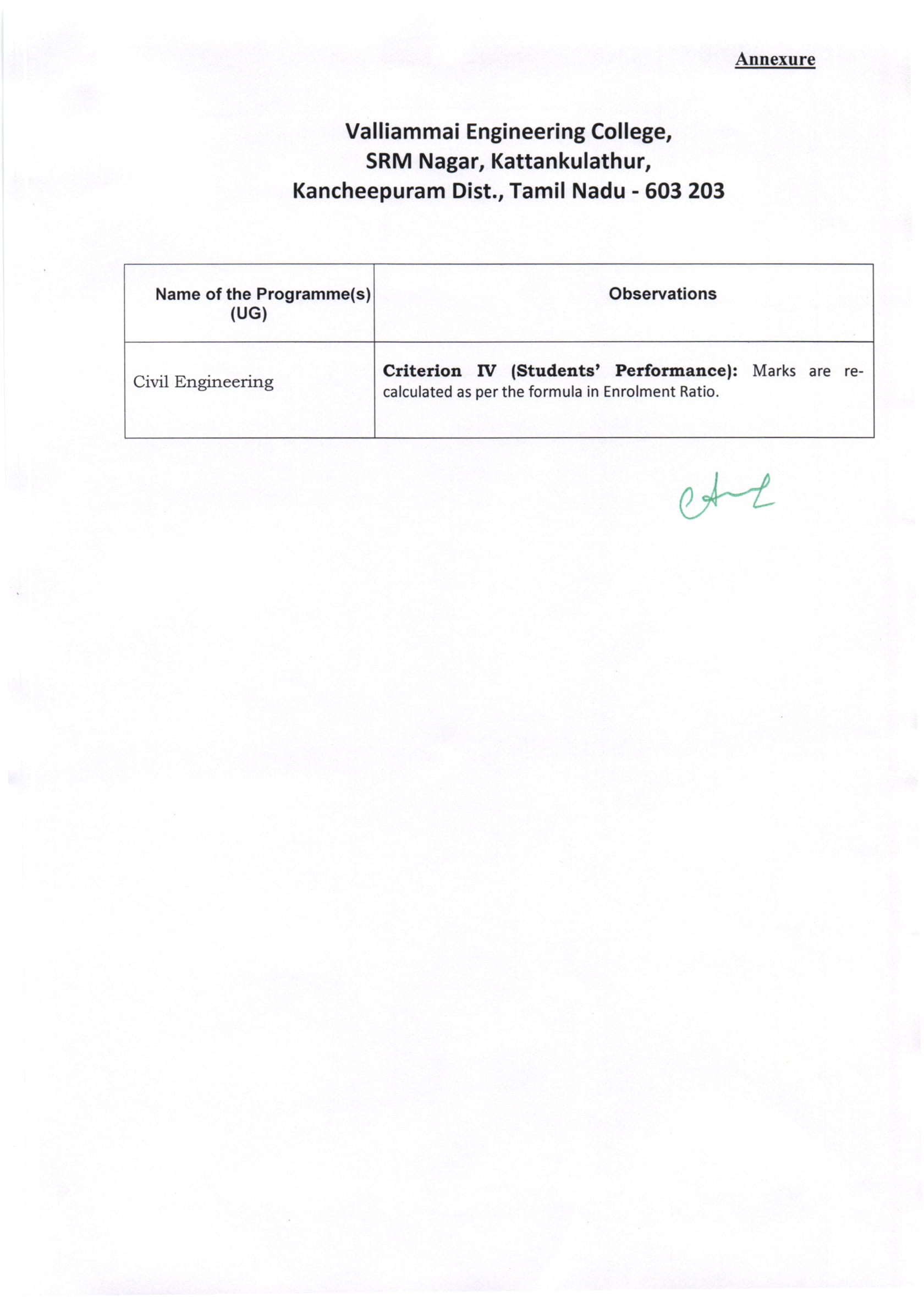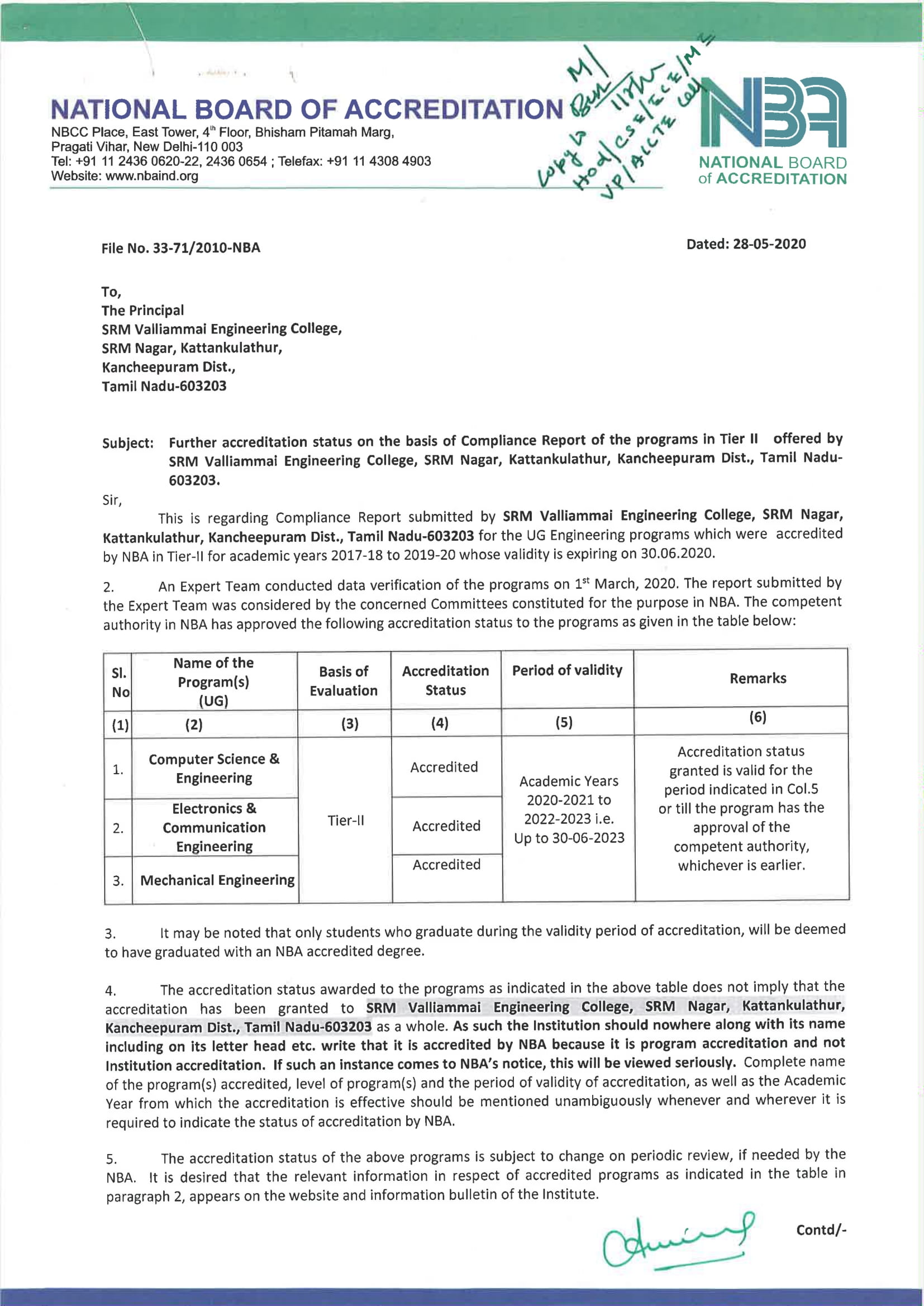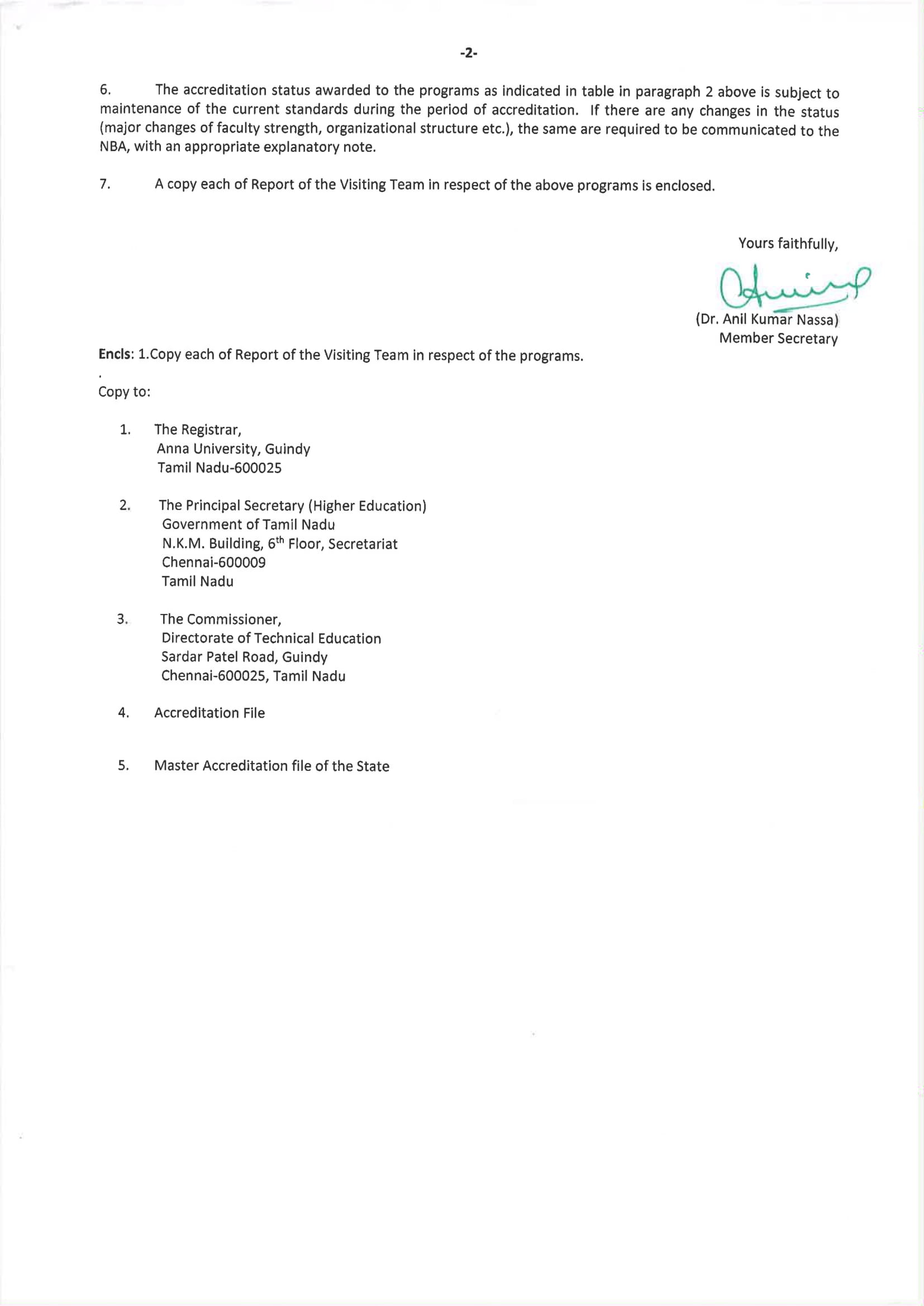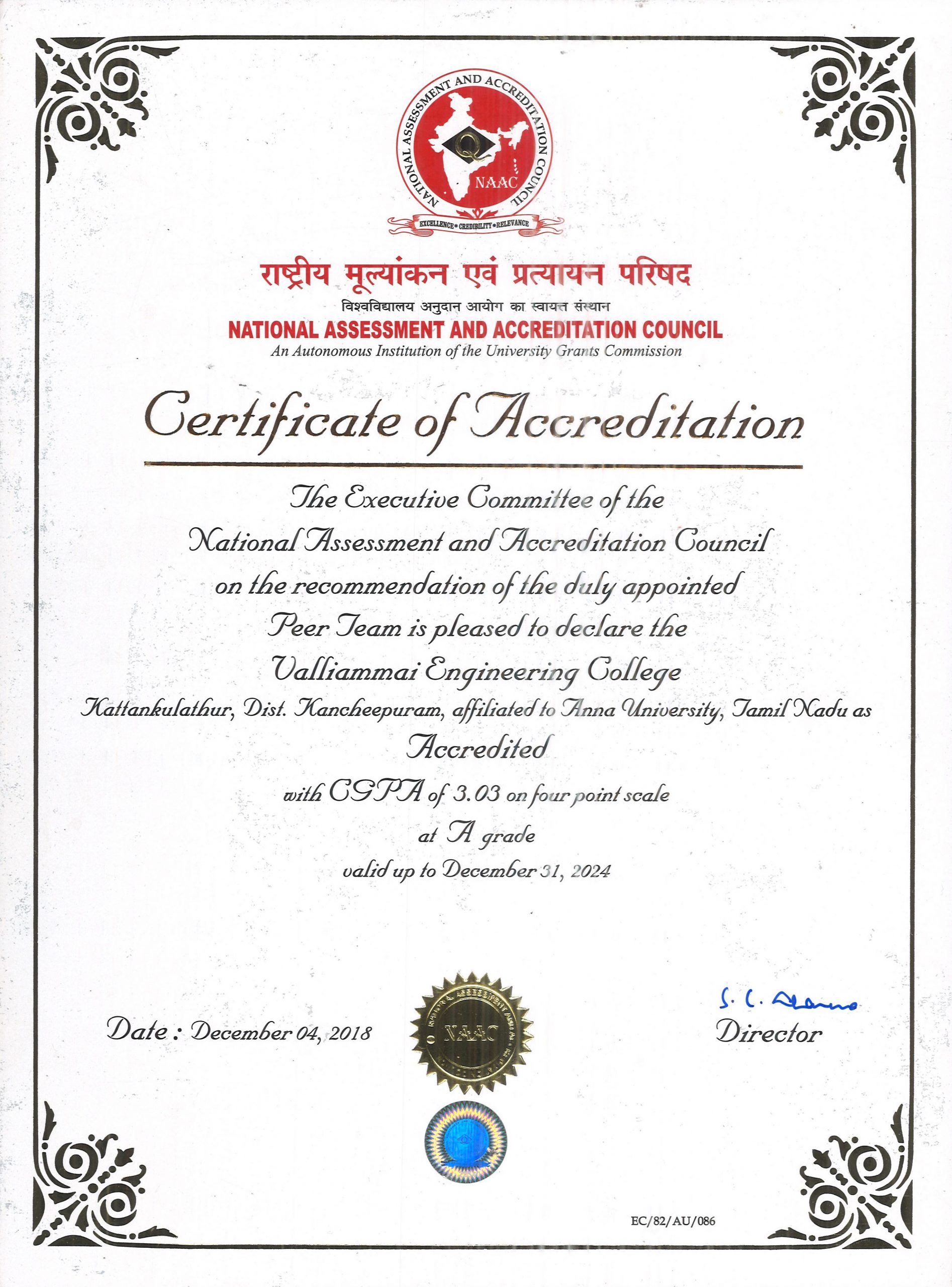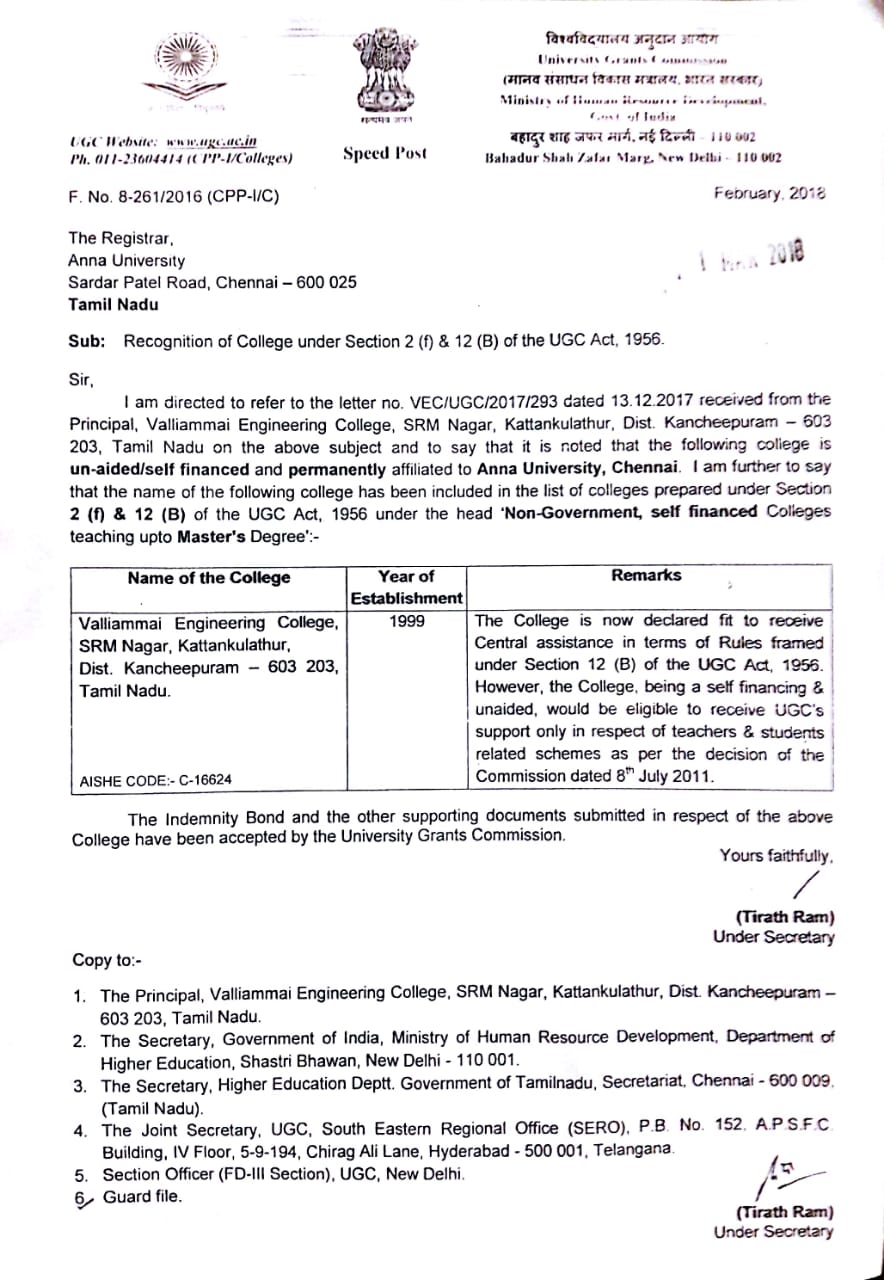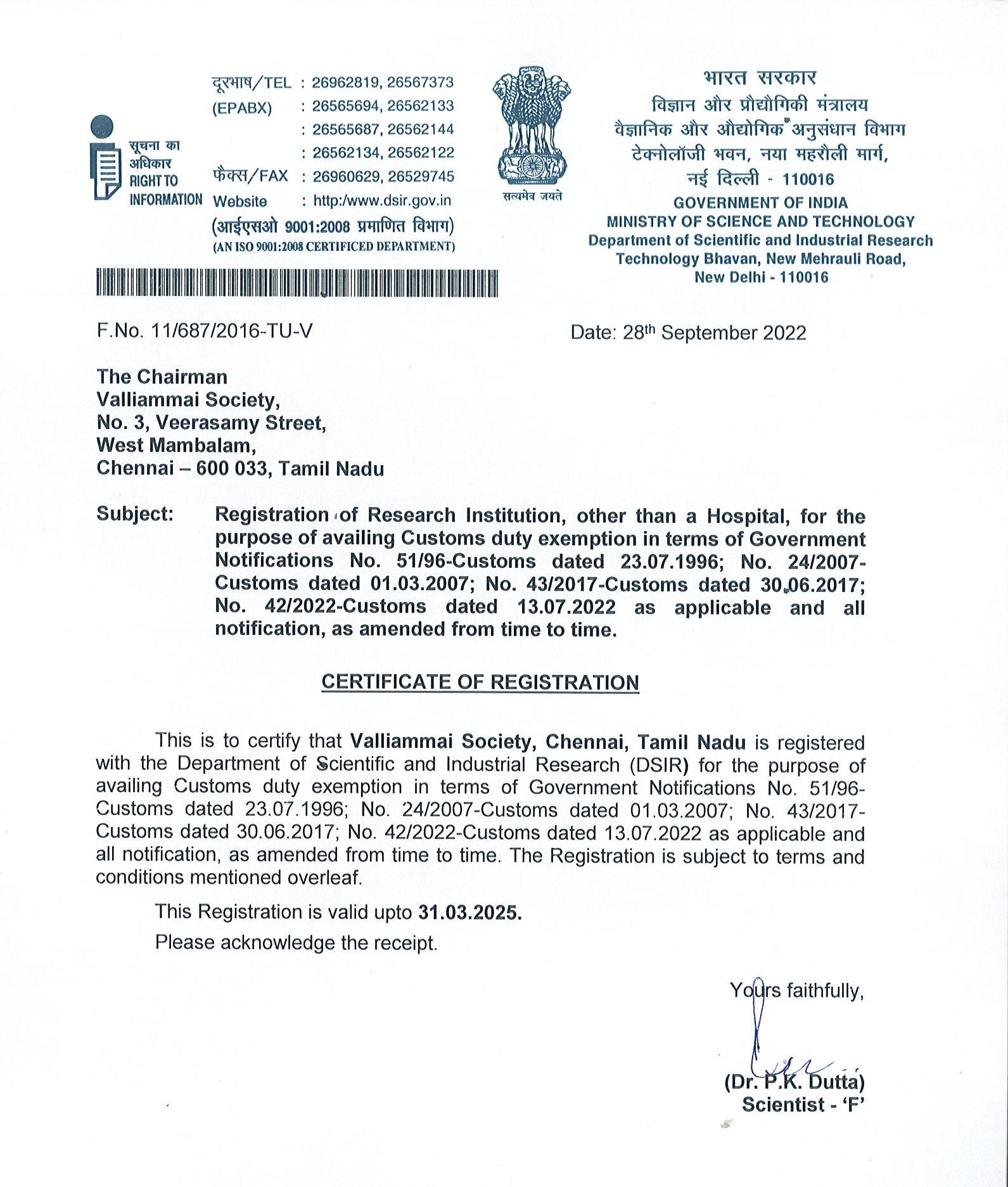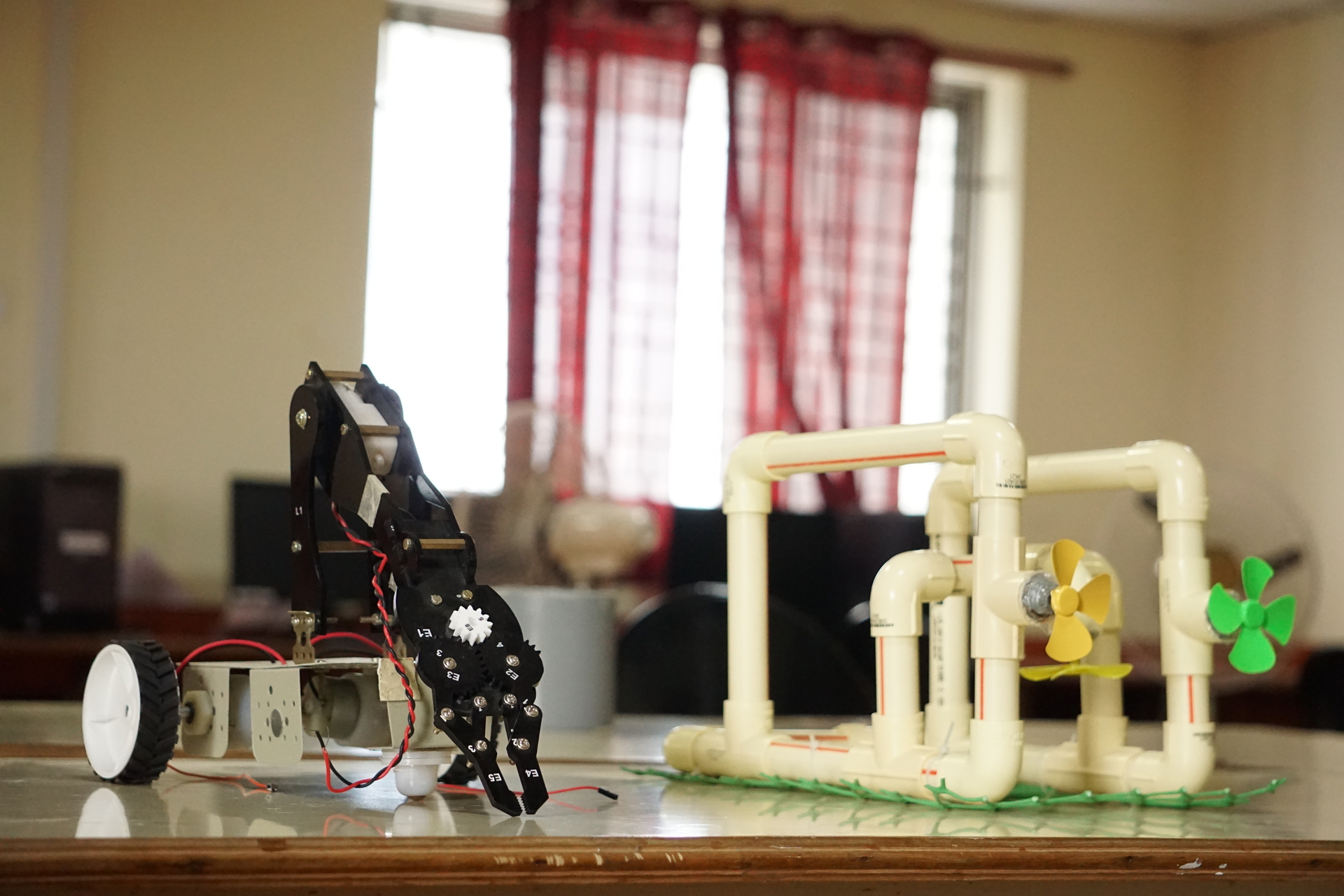
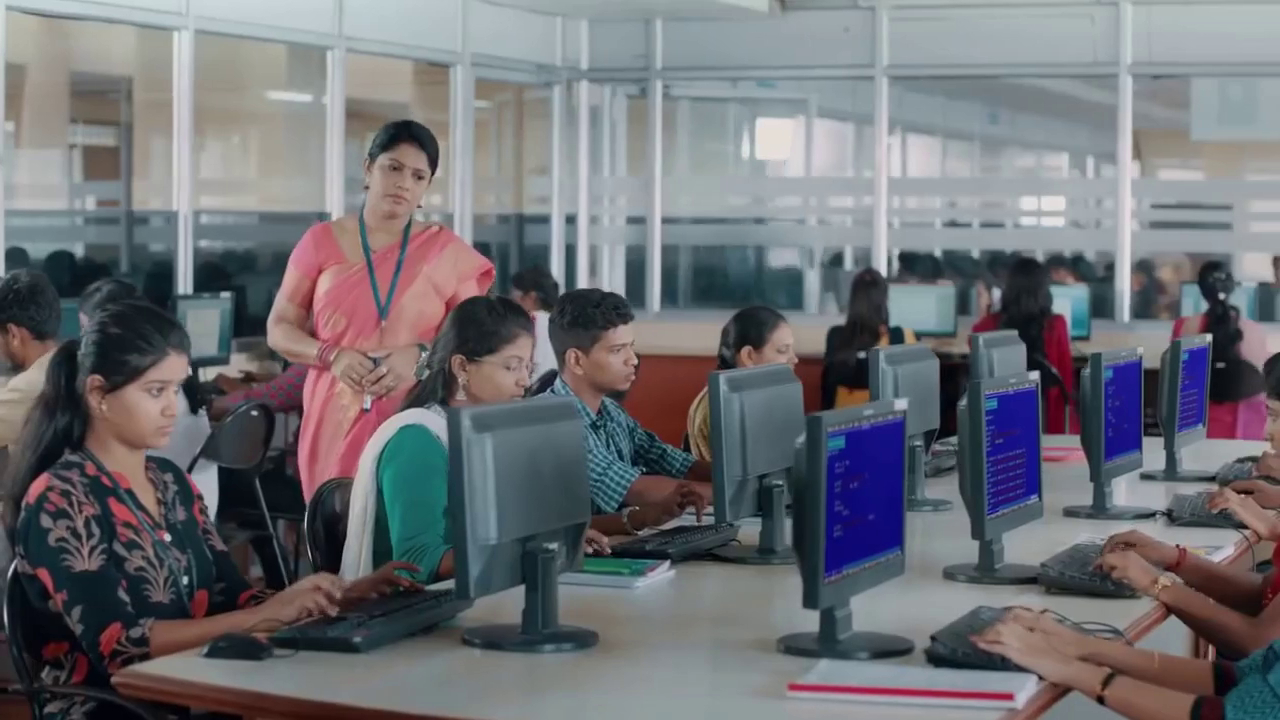
About the Department
Department of Computer Science and Engineering
SRM Valliammai Engineering College, a member of SRM Group of Institutions, was established in the year 1999. The department of Computer Science and Engineering came into existence from the very inception of the college. In addition, we have started PG course (M.E computer Science and Engineering) with an intake of 18 from the academic year 2012-13. Right from its inception in the year 1999, the Department has steadily grown in all spheres in terms of:
- Student strength, physical Infrastructure, number of labs – subject wise, as per the rapid upgradations introduced by AICTE in the recent times and progressive changes in syllabi of Anna University and Anna University of Technology, Chennai.
- Central and Department Library, number of systems in labs, requisite software, organization and establishment of in-house maintenance wing and its training.
- Brilliant faculty strengthened through qualification improvement programs, human resources in the form of trained supporting staff, all round quality development programs and operating systems for improving upon the functional effectiveness in the department.
- The Department has well-qualified Faculty Members with various specialization relevant for the industry.
- Department of CSE is recognized as Research centre by Anna University, Chennai.
The Department strives to develop long Term relationships with Industries and market the Student’s Talents effectively. The Students are thus provided high level ‘Leads and Pathways’ that enable them to gain access to a broad range of ‘high potential’ and ‘hi-tech’ Career Opportunities.
Programmes run by the department are,
- M.E.- Computer Science and Engineering
Vision, Mission, PEO, PO, PSO
Vision
To devise captivating, fascinating and unique practices of teaching that discovers the trained talent and inherent competences of young minds to evolve as humane professional Computer Science Engineers.
Mission
To provide students with challenging ventures, contributing to the betterment of their selfdom to compete with international talents.
To act as a motivational hub to exhibit practical knowledge with the latest technological updates and research publications.
To render ample knowledge to exhibit their ubiquitous talents for the social prosperity and promote industry-institute harmony to upgrade the standards for the international reputation.
Objective
To maintain high standards in the teaching leaning process by moulding students with the potential to acquire more knowledge in the field of Computer Science and Engineering as determined by their evidence both of academic achievement and distinctive careers.
Long Term Goals
- To conduct international conferences with the funding from reputed organizations and publish the papers in privileged journals.
- To get government/MNC funded projects on various fields of computer science.
- To impart updated knowledge to the students by signing MoU with MNC and international companies.
- Initiating the process of establishing research centre in Computer Science and Engineering.
Short Term Goals
- To promote R&D Activities in the field of computer science and engineering.
- To improve the academic standard to the extent of securing 100% of result with a high score.
- To encourage faculties and students to present/publish Research papers in the reputed national & international journals/conferences.
- To equip faculties and students with the latest technology and help them to compete with the international standards.
- To motivate students to do internship projects.
Programme Educational Objectives (PEO’s) :
PEO1: To mould students to exhibit top performance in the higher education and research and to become the State-of-the-art technocrat.
PEO2: To impart the necessary background in Computer Science and Engineering by providing solid foundation in Mathematical, Science and Engineering fundamentals.
PEO3: To equip the students with the breadth of Computer Science and Engineering innovate novel solutions for the benefit of common man.
PEO4: To groom the students to be multifaceted entrepreneurs with professional ethical attitude in broader social perspective.
PEO5: To provide an ambience learning environment that is conducive for the growth of successful professional career of students.
Programme Outcomes (PO’s) :
Engineering Graduates will be able to
- 1. Engineering knowledge: Apply the knowledge of mathematics, science, engineering fundamentals, and an engineering specialization to the solution of complex engineering problems.
- 2. Problem analysis: Identify, formulate, review research literature, and analyze complex engineering problems reaching substantiated conclusions using the first principles of mathematics, natural sciences, and engineering sciences.
- 3. Design/development of solutions: Design solutions for the complex engineering problems and design system components or processes that meet the specified needs with appropriate consideration for the public health and safety, and the cultural, societal, and environmental considerations.
- 4. Conduct investigations of complex problems: Use research-based knowledge and research methods including the design of experiments, analysis and interpretation of data, and the synthesis of the information to provide valid conclusions.
- 5. Modern tool usage: Create, select, and apply appropriate techniques, resources, and modern engineering and IT tools including prediction and modeling to complex engineering activities with an understanding of the limitations.
- 6. The engineer and society: Apply reasoning informed by the contextual knowledge to assess societal, health, safety, legal and cultural issues and the consequent responsibilities relevant to the professional engineering practice.
- 7. Environment and sustainability: Understand the impact of the professional engineering solutions in societal and environmental contexts, and demonstrate the knowledge of, and need for sustainable development.
- 8. Ethics: Apply ethical principles and commit to professional ethics and responsibilities and norms of the engineering practice.
- 9. Individual and team work: Function effectively as an individual, and as a member or leader in diverse teams, and in multidisciplinary settings.
- 10. Communication: Communicate effectively on complex engineering activities with the engineering community and with society at large, such as, being able to comprehend and write effective reports and design documentation, make effective presentations, and give and receive clear instructions.
- 11. Project management and finance: Demonstrate knowledge and understanding of the engineering and management principles and apply these to one’s own work, as a member and leader in a team, to manage projects and in multidisciplinary environments.
- 12. Life-long learning: Recognize the need for, and have the preparation and ability to engage in independent and life-long learning in the broadest context of technological change.
Program Specific Outcomes (PSO’s) :
PSO1: Exhibit proficiency in planning, implementing and evaluating team oriented-software Programming solutions to specific business problems and society needs.
PSO2: Demonstrate professional skills in applying programming skills, competency and decision making capability through hands-on experiences.
PSO3: Apply logical thinking in analyzing complex real world problems, and use professional and ethical behaviors to provide proper solutions to those problems.
PSO4: Demonstrate the ability to work effectively as part of a team in applying technology to business and personal situations.
Faculty
The faculty members are highly qualified and well experienced. There are 2 faculty members who are working full – time and on regular basis and 2 non–teaching staff who provide support for the smooth running of the department. The faculty members impart their knowledge and skills to the students to achieve the goals of the department. The management provides constant support for the faculty members to upgrade their knowledge by sponsoring them to attend seminars, conferences, faculty development programmes (FDP) and quality improvement programmes (QIP). The faculty members are encouraged to publish articles in national and international journals. The management encourages the faculty members to pursue higher education like doctoral programme and provides incentives for faculty who achieve 100% result in the university examinations.
Dr. K. Shanmugam B.E, M.E., Ph.D.
Assistant Professor (Sr.G)
Laboratory
The Department of Master of Computer Science and Engineering has 1 lab for Post graduate students to meet the curriculum and syllabus of Anna University, Chennai.
DONALD D. CHAMBERLIN (PG LAB)
| Computers | 19 |
| Printers | 01 |
| UPS | 01(10 Kva) |
| Software’s | Turbo C++, Ms Office, RedHat Linux, Oracle |
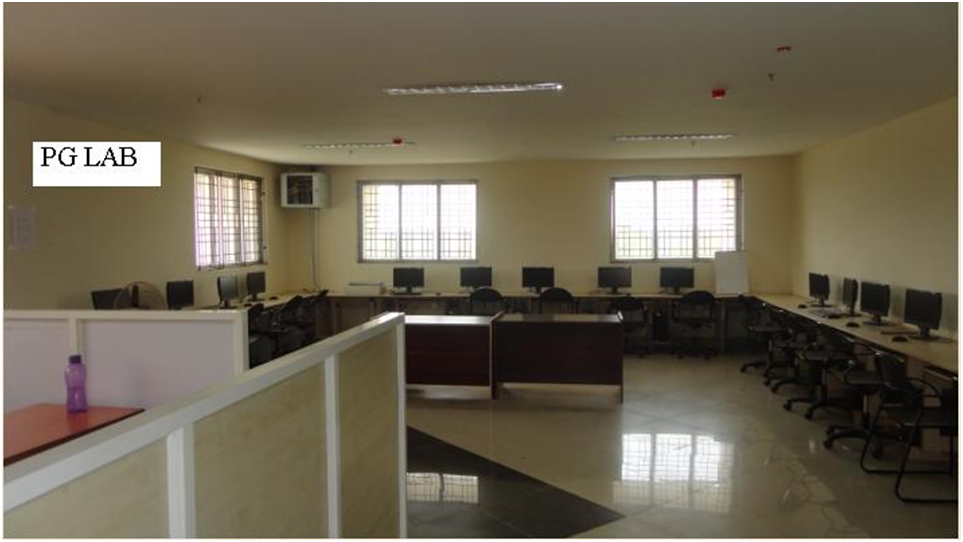
Library
CSE department library facility is available for the department faculty and students for ready reference. It consists of text and reference books in different disciplines. It has a total number of 724 books in common out of which 112 are foreign authored books to meet the Curriculum and syllabus of Anna University such as Operating Systems, Computer Networks, Artificial Intelligence, System Software, Computer Graphics, Data Base Management System, Web Technology, Total Quality Management, Microprocessor, Programming languages, Computer architectures, Data Mining, Cryptography and Network Security, Unix, Visual Programming, Python., etc..
Click Here to view the list of Books.
Placement
A dedicated, full-time placement wing is working for the purpose of providing training and placement for the students. The placement cell is active in bringing experts from the industry to facilitate interaction between the industry and institution, training them so as to be readily acceptable to the corporate sector and infusing the right attitude towards professional career.
Eleven batches of students have gone out from the department and they are well settled in premier companies like TCS, CTS, Wipro, Infosys, Accenture, HCL Technologies, etc to name a few through on–campus placements.
Placement details for the last 6 years
| S.No | Year | No. of Students Placed |
|---|---|---|
| 1 | 2022 | 1 |
| 2 | 2021 | 2 |
| 3 | 2020 | 1 |
| 4 | 2019 | 2 |
| 5 | 2018 | – |
| 6 | 2017 | 6 |
| 7 | 2016 | 3 |
| 8 | 2015 | 4 |
Alumni
Blog
Contact
Dr. B. Vanathi
Professor & Head,
Dept. of Computer Sciene& Engineering,
SRM Valliammai Engineering College,
SRM Nagar, Kattankulathur – 603 203,
Kancheepuram District,
Tamil Nadu, India.
MOBILE : +91 – 9198410 17713 TEL : 044 – 27454784 / 726, EXTN : 8121
FAX : 044 – 2745 1504.
EMAIL : hod.cse@srmvalliammai.ac.in


